The decriminalization of drugs is a death sentence
Addicts need intervention not support to keep using.
The decriminalization of drugs in Oregon in 2020 was meant to shift drug use from being a criminal justice issue to a public health one. Voters who visualized addicts being thrown in jail for something considered a disease just felt wrong, and the measure passed handily.
The public health sector, though, was unprepared for the responsibility and, under their watch, saw the largest increase in overdoses in Oregon history.
Voters were also misled about the reasons for the decriminalization of drugs. It had less to do with penalizing addicts and more to do with social justice. Over the last decade, there has been a movement towards recognizing bodily autonomy, A progressive philosophy that a person has a fundamental right and self-determination over their own body. Within the context of drug use, bodily autonomy gives a person a right to use and do what they want with their own body. The passage of this measure was a big win for progressives. This support, though, had severe consequences. Fentanyl flooded the streets just as Oregon decriminalized drugs and has become the deadliest, most addictive drug in history. Yes, there were fewer addicts in our jail system. They were now in our cemeteries.
The measure also greatly expanded Harm reduction efforts, calling it ‘Increasing community access to care.’ Anyone with only a vague understanding of harm reduction assumes it is directly helping an addict use less. What people don’t realize is Harm Reduction has become a part of the social justice movement. and they now have less to do with the reduction of use and more so the belief in a person's right to use. They took it a step further and not only promoted use but, due to their philosophy, will make no effort to proactively help a person who is slowly killing themselves. That can be found in the eight principles that guide their philosophy. It is called for the Non-judgmental, non-coercive provision of services’ This ‘non-service provision’ means that despite having the most contact with people in the middle of their addiction, it goes against their philosophy to proactively offer treatment. They say that doing so betrays their trust, and what they do instead is stand with them in solidarity.
An Executive director I talked to last year of a national harm reduction program admitted that Fentanyl was deadly but believed that offering services to get clean would ruin the trust. She said it was best to “sit quietly” when our human instinct to save a person kicks in and to “absolutely not say a word.” It is like standing on the dock of a lake and watching a man slowly drown but not helping him until he asks for it.
The last principal they do not live up to. It states ‘Does not attempt to minimize or ignore the actual and tragic harm and danger that can be associated with illicit drug use’ Walk into most harm reduction clinics, though, and you will see drug use promoted. Posters of people smiling while using, Instruction guides on how to use all drugs, and a push for the people with an addiction to take as many harmful reduction supplies as they want to themselves or others.
Things such as pipe, finally foil, and burners. When a hair reduction outreach worker sees a person using, and it is clear they have potentially used too much, they do not intervene. They instead, stand with them in solidarity.
A homeless addict I met last year who supported the measure compared harm reduction outreach workers to dealers without the drugs: “I have the drugs; they have the tools I need to use the drugs.” He admits it is an unusual relationship, but “people will always find a way to use it. They just make it easier for us.” He is also regularly handed Narcan, the opioid blocker, which he appreciates as he has witnessed multiple overdoses this year and helped over a dozen recover.
These social justice causes are not limited to a few radicalized people. Last month, the state of Oregon's Alcohol and Drug Policy Commission sent recommendations to Governor Kotek and the Senate and House leaders for immediate action to reduce the number of people who die of an overdose in Oregon. It mentioned a significant increase in overdose deaths of both African Americans and native americans. What it failed to mention was that Caucasians overwhelmingly were the biggest victims of this addiction crisis, with an over 900% increase in deaths over the combined deaths of the other two demographics. Any death is tragic, but to exclude the largest by far portion is mind-boggling. Proposals like these relate to funds only to help a small percentage of the problem.
We were promised detox, recovery, and treatment programs, and as of today, only one program has opened in over thirty months since the measure passed. Even if ten programs were opened, we would have virtually no outreach to find them and get them connected to those beds. Over the last two years, I have interviewed several hundred homeless in Portland Metro, and over 90% say an outreach worker has never approached them. This is deeply concerning and tells me the ones that fund programs do not understand that ending this humanitarian crisis starts with outreach. The boots-on-the-ground workers find them, build trust, and help them feel hope again. The hope is now at the lowest I have seen in thirty years.
Addiction affects all walks of life and does not care what you look like. This social justice movement, like harm reduction, is all harm and no reduction. Anyone who criticizes it is commonly labeled a racist. The measure did successfully reduce the number of people with an addiction in our jai system; they were now in our cemeteries or will be soon.
Please consider becoming a paid subscriber!

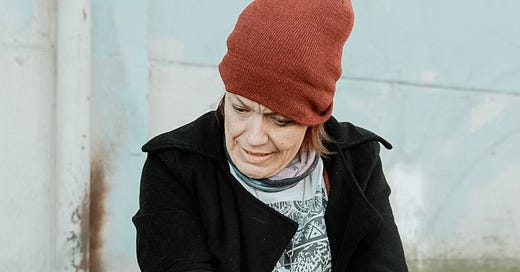




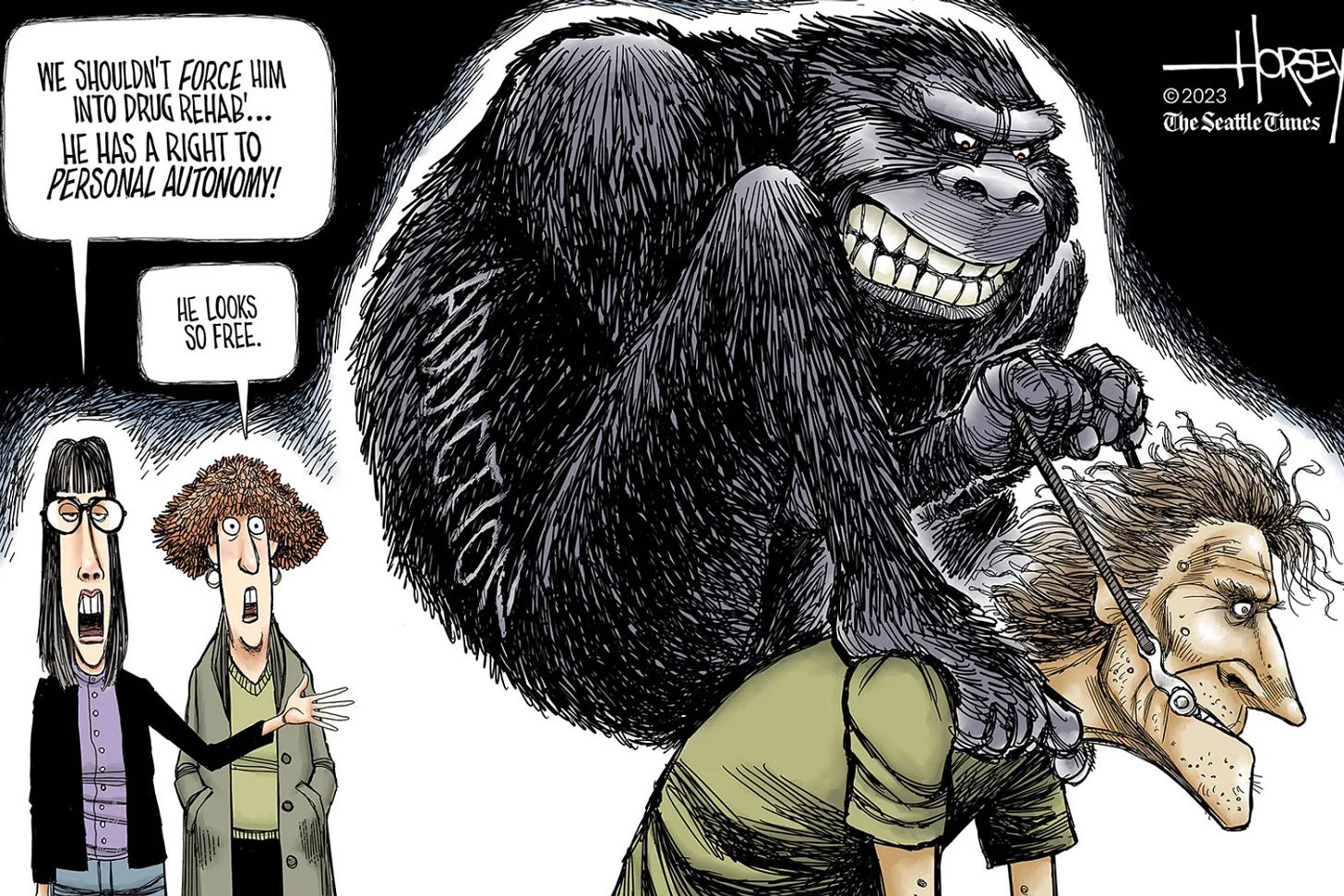



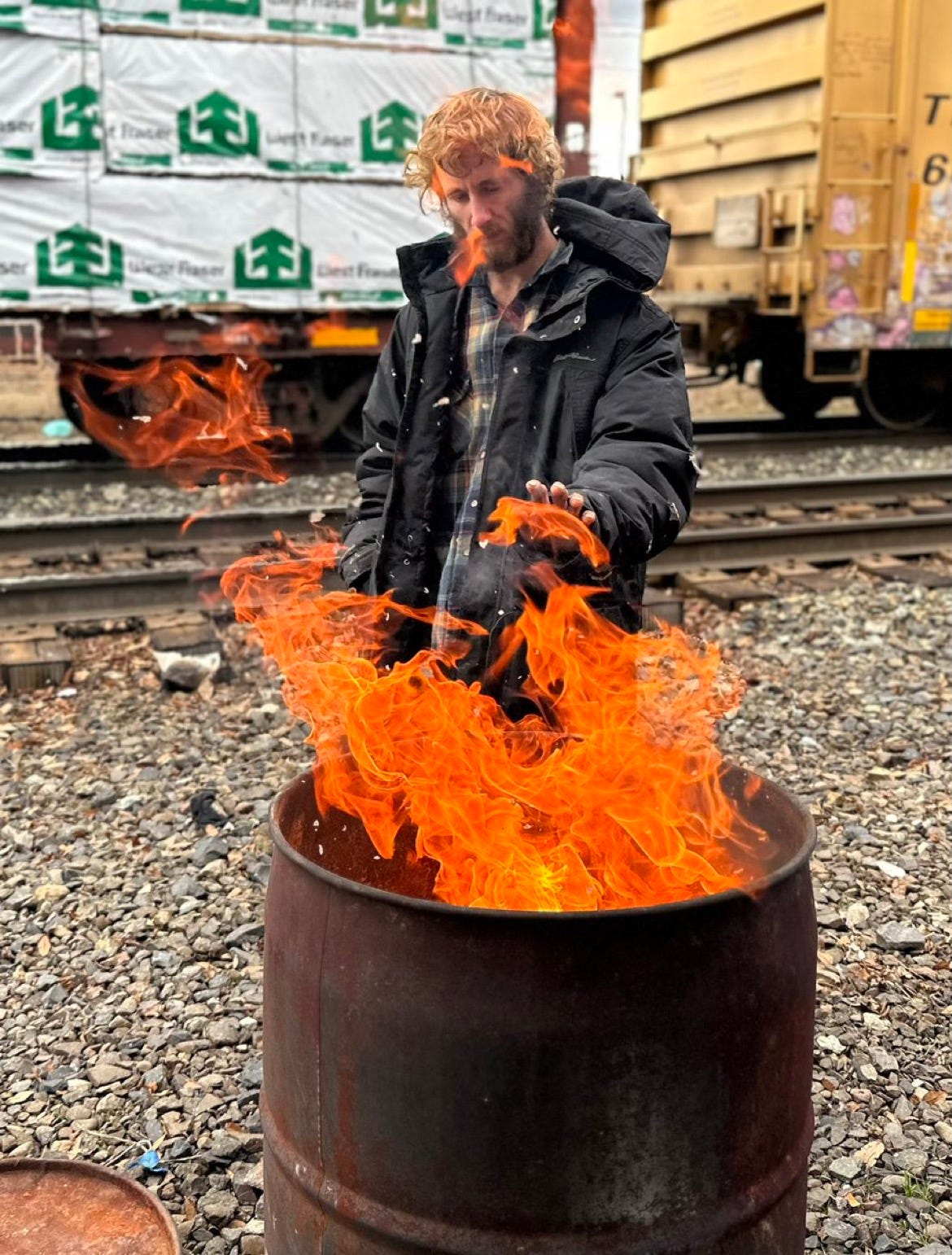
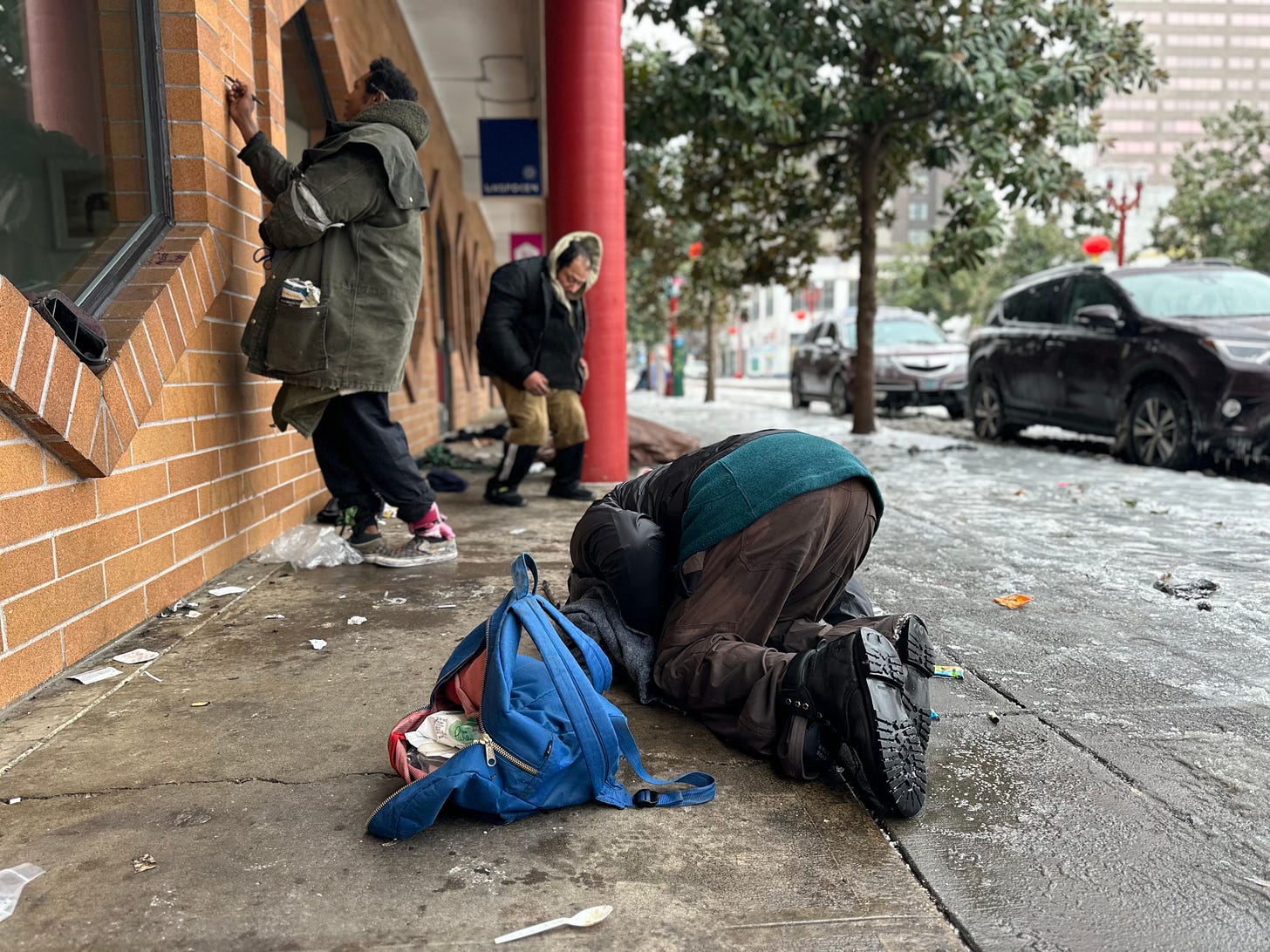
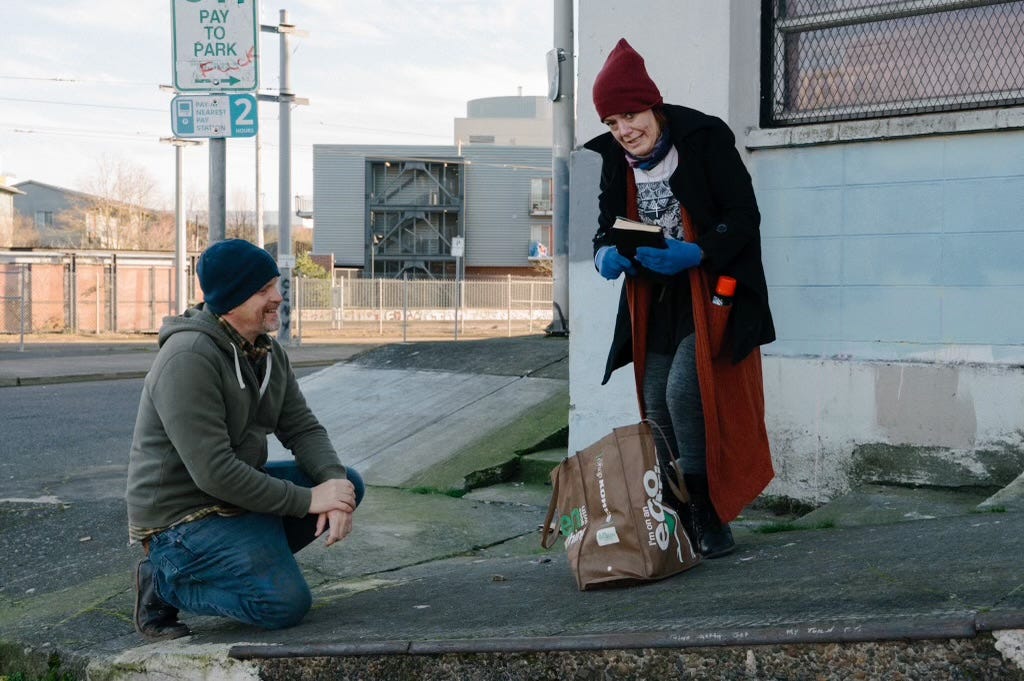
The time has come to cut Oregon's losses and repeal the catastrophic mistake that is Measure 110.
The seemingly unstoppable flood of fentanyl and meth makes a farce of all those nuanced philosophical justifications for decriminalizing the personal use of drugs. There is no such thing as a highly functioning meth or fentanyl addict. Meth and fentanyl destroy the individual. The high number of addicts and dealers on the streets are destroying parts of downtown Portland while sending shockwaves throughout the city.
As if this dystopian reality weren't bad enough, Measure 110's treatment provisions are fatally flawed. That is because they require that all funds for treatment be spent in accordance with harm reduction principles. Now, recent reporting shows that some M110 dollars are being spent on programs that have nothing to do with actual treatment for drug use. Instead they are being spent on community development and similar ends. If that isn't an illegal diversion of treatment funds, it should be.
Be that as it may, harm reduction is an antisocial form of activism that is bad for the community and bad for the user. Advocates for harm reduction pride themselves on their neutrality on drug use and addiction. "No judgment." In fact, that very abdication of a sense of right and wrong is what’s responsible for so much personal suffering and death among addicts and even casual users. Rejection of morality is not a bug; it is one of the principal features of harm reduction. In the harm reductionist's lexicon, "morality" is a dirty word.
Furthermore, harm reductionists' purported moral neutrality on drugs masks their extreme hostility to the moral values that produce healthy societies. The following quote from the Australian sociologist Helen Keane reveals how insanely and contemptuously out of touch harm reduction ideology is with the values of most Americans:
"Government strategies which aim to produce a population of healthy, enterprising and productive citizens, clearly require scrutiny AND ACTIVE FORMS OF RESISTANCE because they subjectify individuals and limit the possibility of different forms of existence." [1] (Emphasis added.)
If harm reductionists' coded double-talk doesn't sit quite right, it's because it is coming from a movement that actively resists the unenlightened majority's desire to see addicts become healthy, enterprising and productive people once again. Unfortunately, addiction is such a nightmare for addicts, their loved ones and the sober public under Measure 110 precisely because harm reductionists are hell bent on finding and honoring the miserable limits of Keane's "other forms of existence."
Harm reduction abets addiction while stigmatizing recovery and sobriety. What Oregon needs are treatment programs that promote detox, rehab and sobriety.
Shouldn't we respect the will of the voters who approved M110? Deals made under false pretenses are not binding. Measure 110's advocates misleadingly sold the initiative as a way to end prosecutions and incarceration for possession of drugs. The truth is that Oregon district attorneys long ago stopped prosecuting simple possession.
Yes, Measure 110's rollout was a catastrophe, but even if it had been implemented flawlessly the mechanism for referring users to treatment - which was one of the major selling points during the campaign - is an outrageously expensive failure because users face no real consequences for failing to follow through with an evaluation and referral.
Besides, because harm reduction is Oregon's drug policy, none of the coercive measures that Portugal employs in its decriminalization scheme to discourage drug use and promote sobriety could ever be implemented in Oregon. Harm reductionists wouldn't stand for it.
Invoking the war on drugs has outlived its usefulness as a tool for silencing and shaming advocates for reasonable drug control. In case the progressive advocates for decriminalization and legalization hadn't noticed, there is no longer a war on drugs. Drugs have declared war on us.
Now is the time for action to repeal Measure 110 as soon as possible.
[1] Keane, Helen. "Critiques of harm reduction, morality and the promise of human rights." International Journal of Drug Policy 14 (2003) 227–232; 231-32. https://www.sciencedirect.com/science/article/abs/pii/S0955395902001512
This is shocking and so sad. The people who are facilitating this seem so removed from reality. I ache for the souls who are enveloped by their addiction and are only being enabled and pushed towards their own destruction. What can be done to end this?